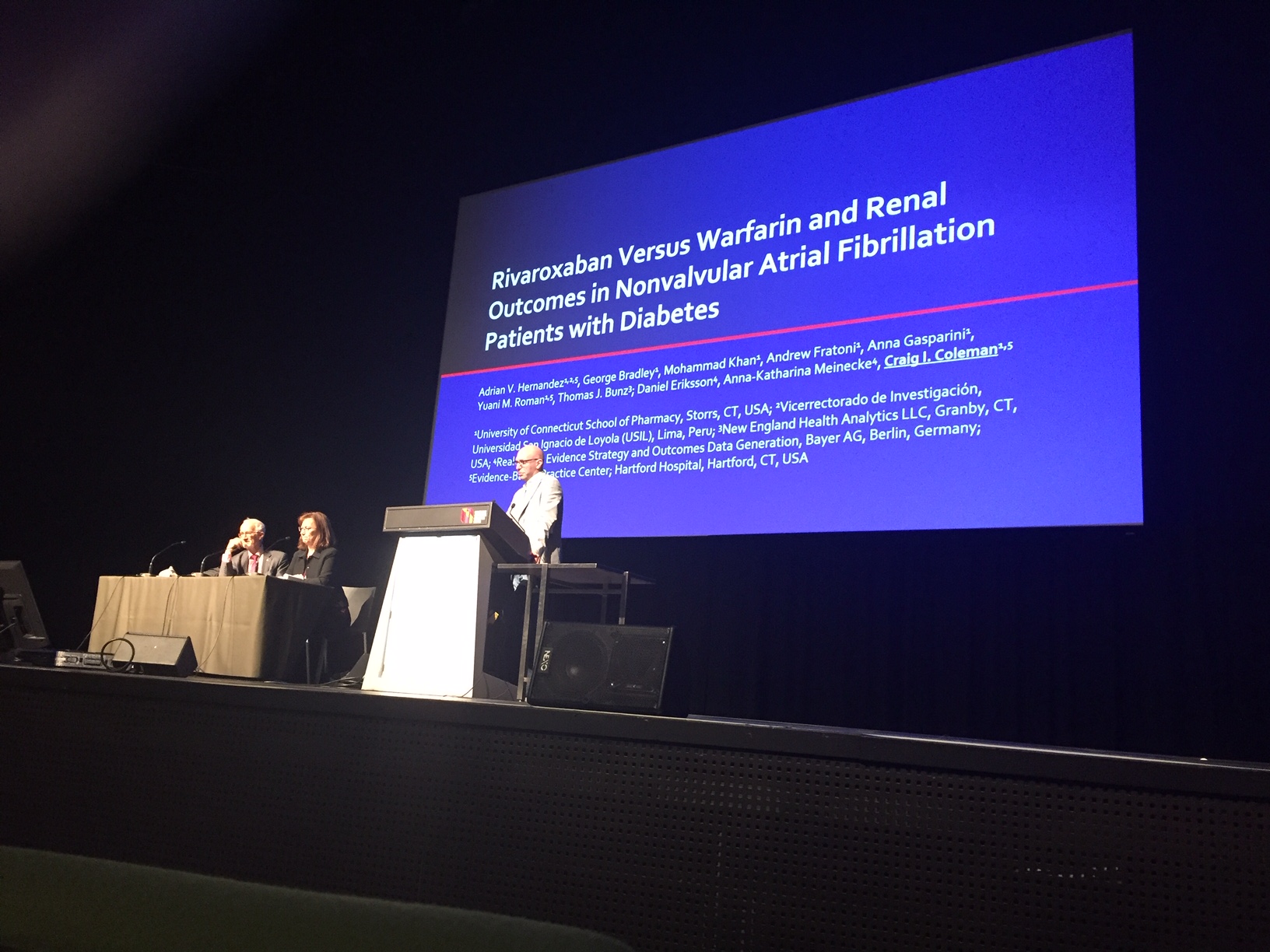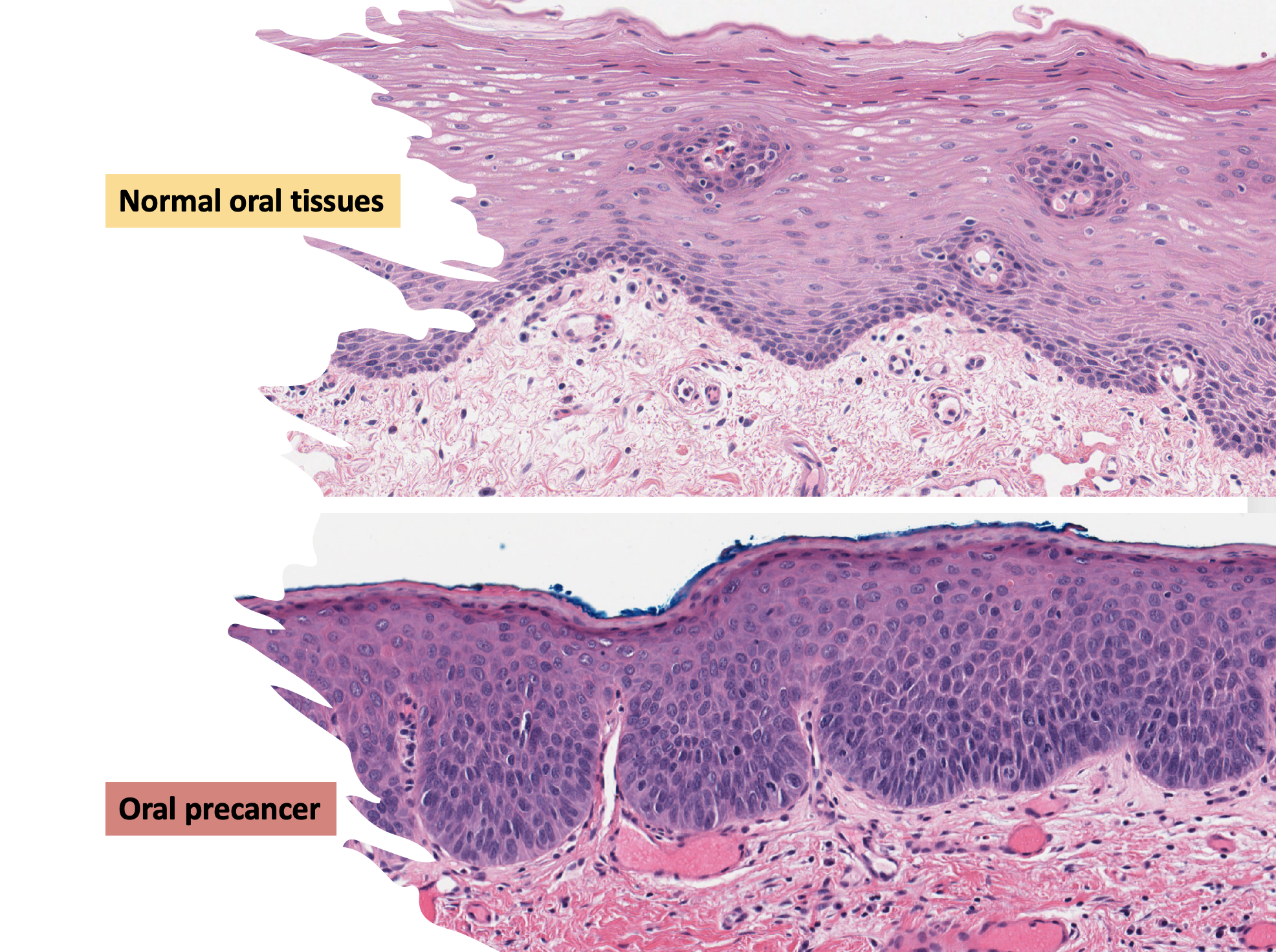Craig I. Coleman, ’01 (Pharm.D.) Professor of Pharmacy Practice in the School of Pharmacy was recently part of a 20 expert panel tasked by the International Pharmacists for Anticoagulation Care (iPACT) with setting new inter-professional guidelines to support patients receiving oral therapy to treat atrial fibrillation (AF). Anticoagulants, in lay terms, are drugs that thin blood.

Coleman says that the need for guidelines on anticoagulant use is based on two key observations. One is that problems relating to anticoagulation therapy are among the top five reasons for hospital admissions, suggesting management of such therapy is sub-optimal. In addition, there is a need to complement existing treatment guidelines created by well-recognized medical societies, such as the European Heart Rhythm Association, the European Society of Cardiology, and the American Heart Association.
Below Coleman answers a few questions regarding his work on the panel.
Q. What is iPACT and why was it formed?
A. iPACT is an international, multi-disciplinary network of experts who recognize and support the importance of optimizing oral anticoagulation management and supporting awareness and detection campaigns for undiagnosed atrial fibrillation.
Anticoagulants are commonly prescribed for individuals experiencing sustained heart rhythm disturbances (arrhythmias) and our goal was to create a multidisciplinary plan that focuses on the complete patient journey, from initiation of therapy to the long term management of the disease with oral medications.
Q. Why are anticoagulation guidelines important?
A. People with atrial fibrillation are three to five times more likely to suffer a devastating – often fatal – stroke than people without the condition. According to iPACT 20-30% of all strokes are atrial fibrillation related. And, difficulties related to anticoagulation therapy are one of the top reasons people enter the hospital.
From a patient perspective – or if you are a relative or caregiver of a patient — it is important that all members of the health-care team are communicating and working as a single unified force to see that a patient gets the best possible care. This team includes physicians, pharmacists, nurses, and others. That is what these guidelines are seeking to do — to increase inter-professional communication. Patients should be happy to know that someone is focusing on the interdisciplinary portion of their care.
Q. What did you and the iPACT team recommend? –The guidelines developed by iPACT don’t include recommendations for specific oral anticoagulants or what oral anticoagulants to use for what types of patients — that has been well covered through international guidelines written by national and international organizations such as the American Heart Association and the European Society of Cardiology. iPACT’s work was more about implementing therapy and making sure that if a prescriber decides someone is a candidate for an anticoagulant, the patient gets all the support they need in order to use the drug properly and to also get the most benefit out of it with the least amount of risk.
A. This involves making sure there are clear channels of communication. We don’t want physicians to assume pharmacists are doing the explaining and follow up; we don’t want pharmacists assuming physicians are doing it. That’s why iPACT felt the need to develop interdisciplinary guidelines that make it clear to everyone on the healthcare team what their responsibilities are when it comes to the use of oral ACs.
Q. What were the key take-aways from the taskforce?
A. The taskforce developed a total of 18 guidelines to support patients receiving oral ACs, but there are five that we considered the most important for the healthcare team to be aware of.
INR monitoring is critical. This is the calculation of the international normalized ratio which monitors how well the blood-thinning medication is working to prevent blood clots. Here we’re talking about Warfarin – or its brand name, Coumadin.
Second, iPACT recognized that the transfer of care between health care settings is a place where treatment plans may not be clearly transmitted, or may break down completely. Communication between healthcare providers is essential any time a patient is moved within a hospital, to a different facility, or discharged.
Adherence to medication is also critical, especially in an elderly population where there is a higher risk of patients missing doses or inadvertently taking the wrong amount. Obviously, where anticoagulants are concerned, there is a fine balance. If a patient forgets to take an oral anticoagulant the patient risks the formation of blood clots that can cause stroke. The medication, however, comes with an increased risk of excessive bleeding that every patient and caregiver needs to be aware of, and be prepared to respond to.
Medication reconciliation and review is also critical. Atrial fibrillation can affect people of any age, but the risk increases as people age. As pharmacists, we may see people who are taking a dozen or more different drugs because this is the time in a person’s life when they may be taking medications for a variety of conditions. This is definitely a situation in which a pharmacist needs to be aware of how various medications interact with each other, and to step in to help a person take what they need on a schedule they can follow.
And finally, patient communication and engagement is vitally important. This involves all members of the health care team and teaching them how to interact with patients and with each other in order to deliver the best possible care for the duration of treatment.
Where can people reference the new guidelines and what are the next steps in implementing them?
A. The international guidelines (click to download them) iPACT developed are an excellent starting point to help guide practice change in our respective countries. We now need to translate the guidelines and engage international and national pharmacy and healthcare leaders to help with the dissemination and application of the guidelines at the primary points of care. Only then will we unlock the potential positive clinical impact.



